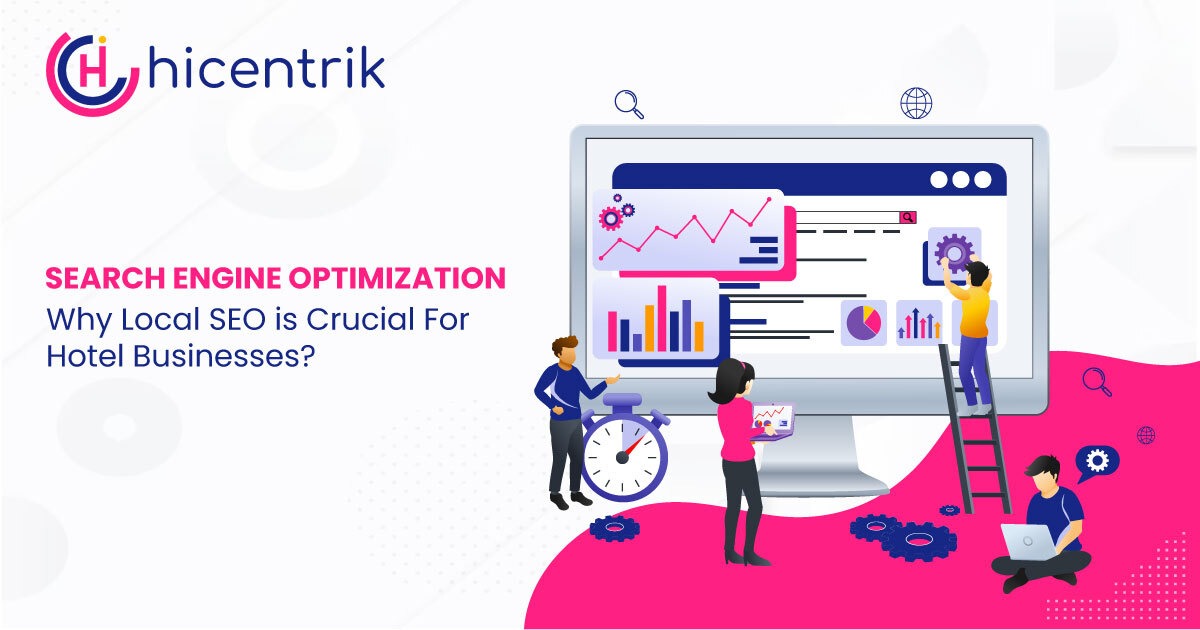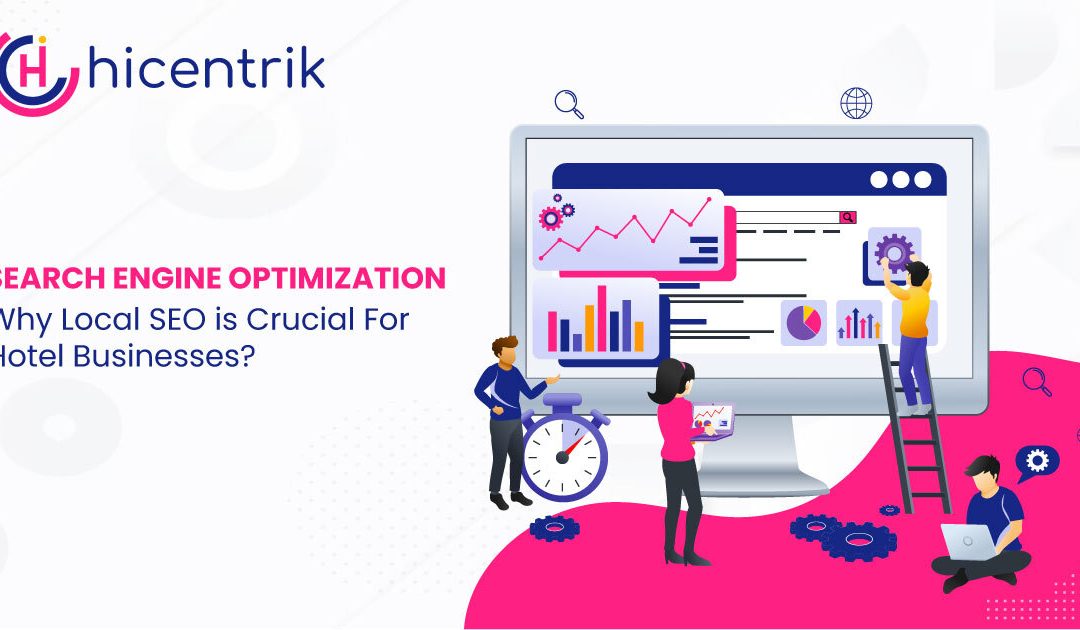
Hotel SEO is the search engine optimization process for your hotel business, website, mobile application, and everything in between. With the raging competition in the hotel industry, you need your hotel to rank consistently on the SERPs. And for that, you need an infallible SEO strategy. What’s more, trends in SEO and digital marketing are constantly changing. And local SEO for hotels is the newest trick on the block!
What is Local SEO for Hotels?
Did you know 1.6 billion searches daily on Google have local intent? This means that 46% of the searches include people looking for businesses, hotels, restaurants, and other services in their area.
Search engine optimization can help your brand build an authentic and sustainable reputation. Considering the nature of your business, your toughest competitors are the ones that are proximally close to you. Hence, local SEO for hotels will enable your business website to rank consistently on the search engine results page.
Local SEO uses keywords related to your brand, your niche in the consumer market, and geo-tagging. Here, your keywords related to your business will be combined with the location. But what happens with local SEO that regular SEO can’t accomplish? Well, it lets your intended audience within the vicinity find your hotel first, compared to your competitor.
What Are the Ranking Factors for Local Search Engine Optimization?
Using paid ads can help you reach the top in SERPs, but this is not a viable idea for the long term. So, let’s look at some of the most important local SEO ranking factors, shall we?
- Relevance – You must understand search or user intent to match your audience’s search intent. User or search intent is the intention behind a particular search. It can be informational, transactional, commercial, or navigational. Search intent differs significantly between leisure and business travelers as well. However, search engine continues to be the most important tool in both types of travel planning. You can improve relevance by providing all the necessary information for your online business profile on different search engines. This will make it easier for the intended audience to find your business.
- Keyword research – This may be the oldest trick in the book for search engine optimization, but it is also necessary for organic ranking. Keyword research can also help you to understand user intent better. For example, ‘hotel rooms for booking’ has a transactional intent, whereas ‘how many luxury hotels are in my area’ has an informational intent. Hence, keyword research will tell you which keywords are ranking the highest in your area, and you can optimize your website, content, and structure according to that.
- Google Hotel Packs – Similar to a local map pack, Google Hotel Pack shows the user the map of certain hotels in a particular area on the SERP. Here you must remember that the local map pack ranking factors often differ from regular SEO services or local SEO. Your business must leverage keyword research, UNAP or URL, name, address, and phone. Include these four details in your online business profile, making ranking on the Google Hotel Pack easier.
- Respond to GBP reviews – Customer review is integral to any business. And so is replying to all the GBP or Google Business Profile reviews, both negative and positive. Do not just use an AI to reply to all the reviews. Rather, take the time to construct a reply individually to the customers carefully. This will let prospective guests know you value your customers and their feedback. And honestly, how many businesses are there that truly value customer feedback?
- Distance – Distance is a significant ranking factor for local SEO. If the distance between the searched location and your hotel is too high or too far off, it may not appear on the SERPs. Here, you must backlink to the major site attractions within your region. So, once people visit those websites, they will be seamlessly guided to your booking website or the home page. Once a prospective customer visits your hotel business, the probability of visiting your establishment increases significantly. Google research states monthly, 1.5 billion people visit the local business they have searched for.
What is the Local SEO Process for Hotels?
Step 1: Pick the right keywords – Keyword research is the fundamental and most critical step in optimizing your business for better SERP ranking. Consider and understand user intent, identify the keywords consistently ranking in your sector and for your competitors, and understand the different variations using the location. For example, ‘your business name + location’ is a good keyword for local SEO.
Step 2: Optimize your Google Business Profile and website to include the selected keywords, create backlinks to the local tourist attractions, and build authenticity. Do not just use the keywords a bunch of times in your content. Use it with intent and carefully. Leverage both on-page and off-page SEO to optimize. Businesses offering SEO services in your area can help you significantly in this area.
Step 3: GBP Reviews – This is the most efficient way of boosting your webpage ranking. Solicit reviews from your customers by sending them a follow-up email with a link to your GBP. And don’t forget to craft a careful and individual reply to each review. This will build your reputation and authenticity on the search engine.
Step 4: Track Results – This may not sound like an important part of building local SEO, but tracking your result is the only way to identify the challenges in your strategy. You need to track three things: ranking, website or booking page traffic, and conversion. If ranking and traffic are high yet conversion isn’t, it’s time to evaluate your website for a better user experience.
In conclusion, if your SEO efforts for your hotel business are not yielding satisfactory results, it’s probably because you haven’t leveraged local SEO. Structure your content and website for local search engine optimization and witness steady and significant growth in your business!
Nikita Sharma is Chief Strategy Centrik @ hicentrik. She Strategizes, Optimizes & Revises digital activities to deliver optimum results & returns.
6 Years of Global Experience in Multi-tasking, i.e. Digital Advertising, Social Media, Ad Campaigns, Web Design & Development, Lead Generation, and Reporting.




